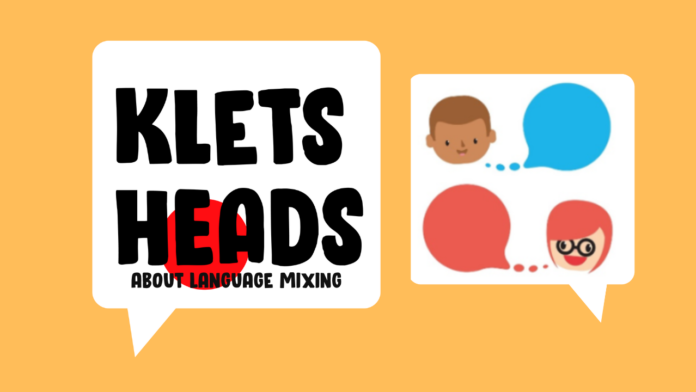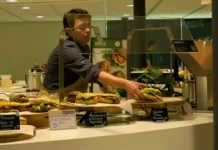Raising bilingual children: should you worry about language mixing? Eindhoven News reaches out to the makers of Kletsheads, a podcast about bilingual children for parents, teachers and speech-language therapists to analyse the impact of language mixing.
This article is written by Sharon Unsworth and Aniek Ebbinge. It is based on an episode of the Kletsheads podcast all about language mixing. In each episode, Dr Sharon Unsworth, a linguist at Radboud University, Nijmegen, and mother of two children (both bilingual, of course), discusses the science behind the language development of bilingual children with another expert.
If you can speak two languages, and the people around you do, too, chances are that you will sometimes use them both in the same conversation or in the same sentence. For many bilingual families, language mixing – or code-switching, as it is often called – is quite normal. It can also be a cause for concern. Research suggests, however, that such concern is not necessary.
Bilingual children may start a sentence in one language and end it with the other. They sometimes throw in words from the other language in what is otherwise a monolingual conversation. Many parents worry that this may be a sign that their children can’t speak either language well, or that they’re confused. Neither is the case.
There are several reasons why we bilinguals mix our languages. Perhaps the most common is that we don’t know (or can’t find) the right word in the language we’re speaking. To fill the gap, we switch to a language in which we do know the word for whatever it is we’re talking about. This type of mixing often takes place when children speak a different language at home from the majority language that is used in school. Children growing up here in the Netherlands and who attend Dutch-language school will likely know the words that are related to school (for example, ‘driehoek’ or ‘rekenen’) in Dutch only, and not in their home language (or languages). It makes sense, then, that when they are sat at the dinner table having a conversation in their home language, they might mix in some Dutch when they start talking about what they did at school that day.
Children aren’t the only ones who mix their languages. Parents who speak more than one language do this, too. And so, another reason why bilingual children mix their languages is because their parents do so, too. If as a bilingual parent it’s normal for you to mix languages, it’s likely your children will copy this behaviour. Evidence for this comes from a famous study about a 2-year-old girl who was growing up with English and Norwegian. Her father regularly mixed the two languages but her mother did not. This difference was reflected in their daughter’s language use: the girl did not mix her two languages that much when she was speaking to her mother, but when she spoke to her father, her language mixing increased. In other words, even at an age when children are not yet speaking in full sentences, their language use shows a subtle awareness of the patterns of language used by those around them.
Language mixing depends on who you are talking to, what you are talking about and where you are. More often than not, children know very well which language to speak in what situation and can keep the languages separate if they need to do so. Language mixing is not a sign that children are unable to speak the languages well. When bilinguals mix their two languages, they are not just randomly putting words together. Their utterances follow grammatical rules, irrespective of whether there are one or more languages involved. Language mixing is actually quite a creative process in which bilinguals make use of all of their knowledge to communicate.
Bilingual parents who mix their languages when speaking to their child often feel guilty. They may worry that this will have a negative impact on their child’s language development. Perhaps surprisingly, not much research has been conducted on this topic, but what research there is shows that more mixing by parents does not lead to slower language development by children. In the one study where such a negative effect was found, this disappeared after a few months. In a different study, rates of parental mixing were even found to positively influence children’s vocabulary development, although this study was limited in scope and hence its results should be treated with caution.
In short, then, language mixing is completely normal and based on the available research, there’s no real reason to worry about it, either when your child does it or you do it yourself as a parent. The fears that parents have about language mixing stem from a perspective on the world wherein many places, the Netherlands included, being monolingual is seen as the norm and being bilingual the exception. Instead of worrying about language mixing, maybe it’s time for everyone to embrace bilingualism and all that this entails.
In Kletsheads you would find practical tips, interviews with children about what it’s like growing up with two or more languages, and with parents and professionals about their experiences with bilingual children. Find out more at kletsheadspodcast.org or search for Kletsheads [English edition] in your favourite podcast app.















